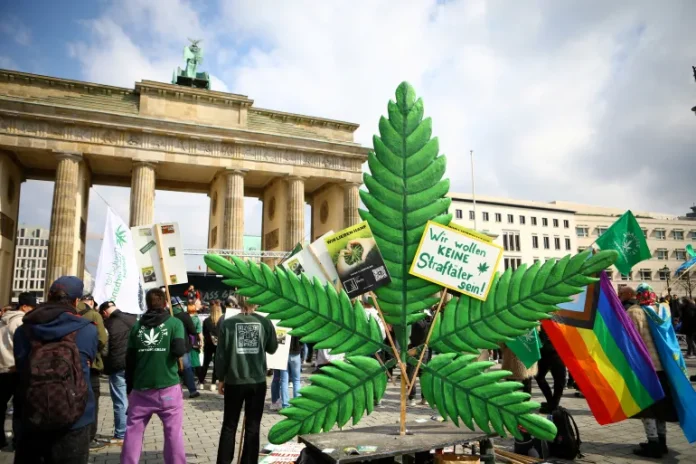The German parliament has approved the partial legalisation of cannabis for personal use, giving the country some of the most liberal laws on the substance in Europe.
From 1 April, Germany will decriminalise the possession and cultivation of cannabis at home. Adults over the age of 18 will be allowed to possess 25 grams of cannabis and grow up to three plants at home. From 1 July, non-profit “cannabis clubs” will be able to supply up to 500 members with a maximum of 50 grams per month per member. Health Minister Karl Lauterbach wrote on X after the decision:
“The fight was worth it. Please use the new option responsibly. Hopefully this is the beginning of the end for the black market today.”
Representatives of the federal state governments have long debated whether they should exercise their right in the Bundesrat to convene a “mediation committee” to settle differences over the law with the Bundestag, the chamber of federal representatives. That would have delayed the law’s passage by six months. But in a midday vote they decided against it.
The states feared that their courts would be overburdened. Because of the amnesty provision in the law, tens of thousands of old cannabis cases must be dealt with in a short time. Many have criticised too much cannabis allowed to be possessed and not enough prohibition zones around schools and kindergartens.
In a statement, Lauterbach announced several changes to the law before 1 July. Cannabis clubs will now need to be inspected “regularly” rather than annually to reduce the burden on government agencies. Drug prevention will be strengthened.
The decriminalisation legislation is the so-called “first component” of a two-phase plan to legalise cannabis in the country. The decriminalisation bill is expected to be followed by the “second pillar”, which will establish municipal five-year pilot programmes for the sale of cannabis under state control in licensed shops.
Proponents of the law, such as the German Cannabis Association, say black market cannabis can include sand, hairspray, talcum powder, spices or even glass and lead. Cannabis can also be contaminated with heroin or synthetic cannabinoids that are up to 100 times stronger than natural psychoactive cannabinoids, experts have said.
Germany has become Europe’s largest market for medical cannabis since the government legalised the drug for patients in 2017.
Malta and Luxembourg legalised recreational use of the drug in 2021 and 2023, respectively. The Netherlands, known for its liberal cannabis laws, has been cracking down on sales to tourists and non-residents in recent years.
